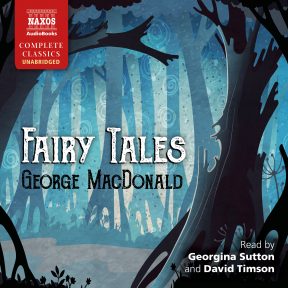The NAB Blog
Fairy Tales Without Fairies
By Anthony Anderson
9 December 2022
 ‘George MacDonald… in his power to project his inner life into images, beings, landscapes which are valid for all, is one of the most remarkable writers of the nineteenth century.’ W.H. Auden
‘George MacDonald… in his power to project his inner life into images, beings, landscapes which are valid for all, is one of the most remarkable writers of the nineteenth century.’ W.H. Auden
George MacDonald, often lauded as the father of modern fantasy writing, was one of the leading thinkers of his time. A prolific writer (he produced poems, novels, sermons and essays), it is his fairy tales and longer fantasies that are best known today. In these, his distrust of conventional perspectives is evident, and assumptions are challenged as he offers an alternative world. In his writing – as in his life – he questions the cultural assumptions of his own day. Indeed, MacDonald’s unorthodoxy had led him to resign from his ministry at the Trinity Congregational Church at Arundel. His influence on several later writers is well documented. C.S. Lewis hailed him as a master of ‘myth-making’, and Lewis’s contemporary and fellow Inkling Tolkien owes MacDonald a more obvious debt. Chesterton cited The Princess and the Goblin as a book that had ‘made a difference to my whole existence’, in showing ‘how near both the best and the worst things are to us from the first… and making all the ordinary staircases and doors and windows into magical things.’ MacDonald also played a crucial role in encouraging Lewis Carroll to submit Alice in Wonderland for publication.
MacDonald was writing for adults as much as for children, explaining that ‘I do not write for children, but for the childlike, whether of five, or fifty, or seventy-five.’ Indeed, in his own day, some of his fairy stories were deemed unsuitable for younger readers. His first foray into children’s fiction, The Light Princess, which opens our new audiobook anthology, was in conflict with the conventions it challenged to the extent that it was only published as part of the adult novel Adela Cathcart, where it is told by an elderly character, John Smith. It was only after the publication and reception of Carroll’s Alice that there was an acceptance that experimental fantasies were suitable fare for Victorian children. This resulted in MacDonald writing more fantasies, often in long form.
The world that MacDonald creates in these stories is often uncertain and insecure. They are imbued with a dreamlike quality and he invites his readers to indulge their imaginations. Perhaps his approach to writing these stories is best summed up in his essay The Fantastic Imagination:
‘The natural world has its laws, and no man must interfere with them in the way of presentment any more than in the way of use; but they themselves may suggest laws of other kinds, and man may, if he pleases, invent a little world of his own, with its own laws… When such forms are new embodiments of old truths, we call them products of the Imagination…’
With these superb readings by Georgina Sutton and David Timson, listeners can now hear these stories in a production that is enhanced by several new song settings, specially composed by Roger Marsh.
« Previous entry • Latest Entry • The NAB Blog Archive • Next entry »